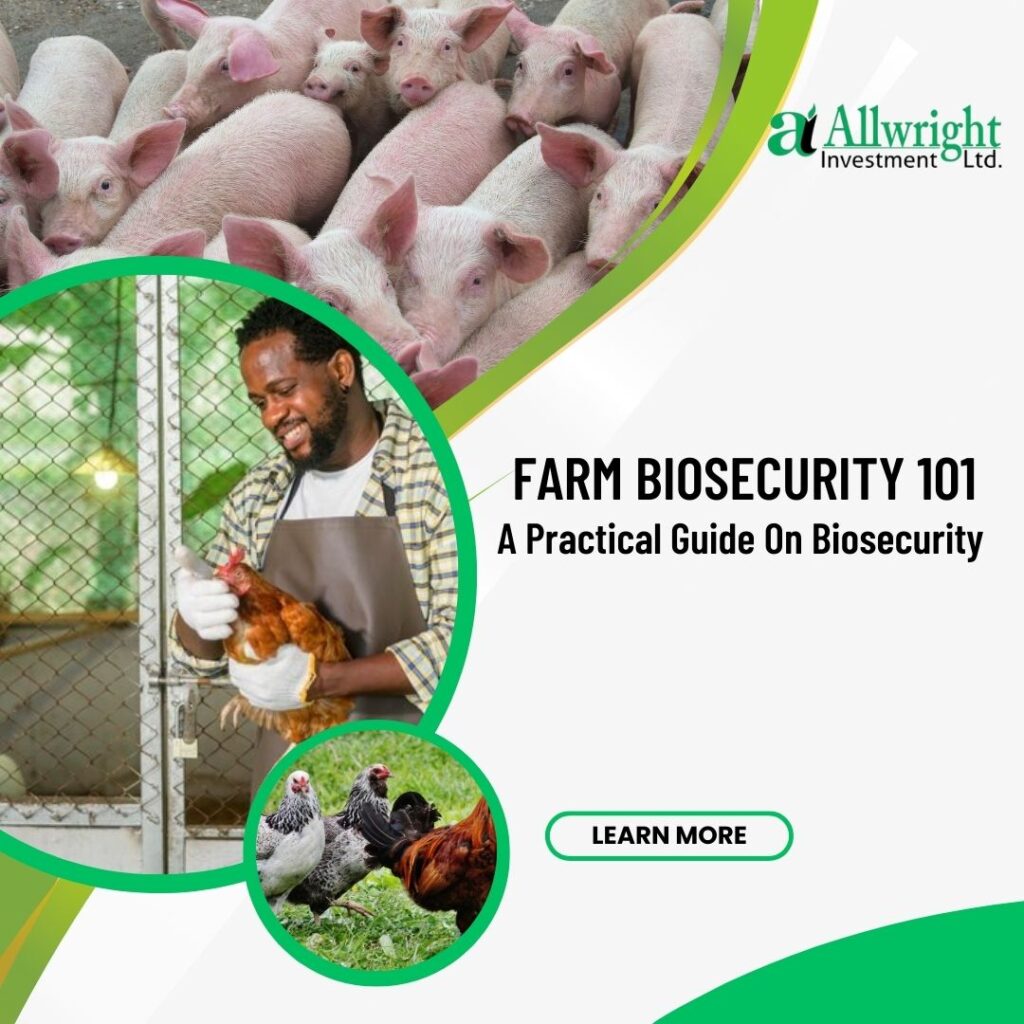As farmers, ensuring the health and safety of our livestock is paramount. With the rise of infectious diseases and other threats, implementing strong biosecurity measures is essential to safeguarding our farms.
There are some fundamental strategies and practices that every farmer should know to protect their operations.

Biosecurity consists of a range of practices designed to prevent the introduction and spread of diseases within a farm. It involves controlling access, minimizing disease exposure, and applying protocols to reduce risks effectively.
One of the first steps in biosecurity is controlling who enters and exits the farm premises. We recommend establishing secure perimeters, implementing visitor protocols, and maintaining hygiene stations at entry points to minimize the risk of disease transmission.
Routine health checks, disease testing, and keeping detailed records of any unusual symptoms or patterns among livestock is very important.
Also maintaining high standards of cleanliness is essential for preventing disease outbreaks. We advises farmers to regularly clean and disinfect equipment, vehicles, and facilities.
Vaccination programs tailored to specific disease risks, as well as regular deworming and parasite control measures. Prompt identification and isolation of sick animals can help prevent the spread of illness within the herd.
By implementing these proven biosecurity strategies and working closely with veterinary experts like Allwright investment limited, farmers can enhance the power of their operations and ensure the continued health and productivity of their livestock.

Leave a comment
You must be logged in to post a comment.